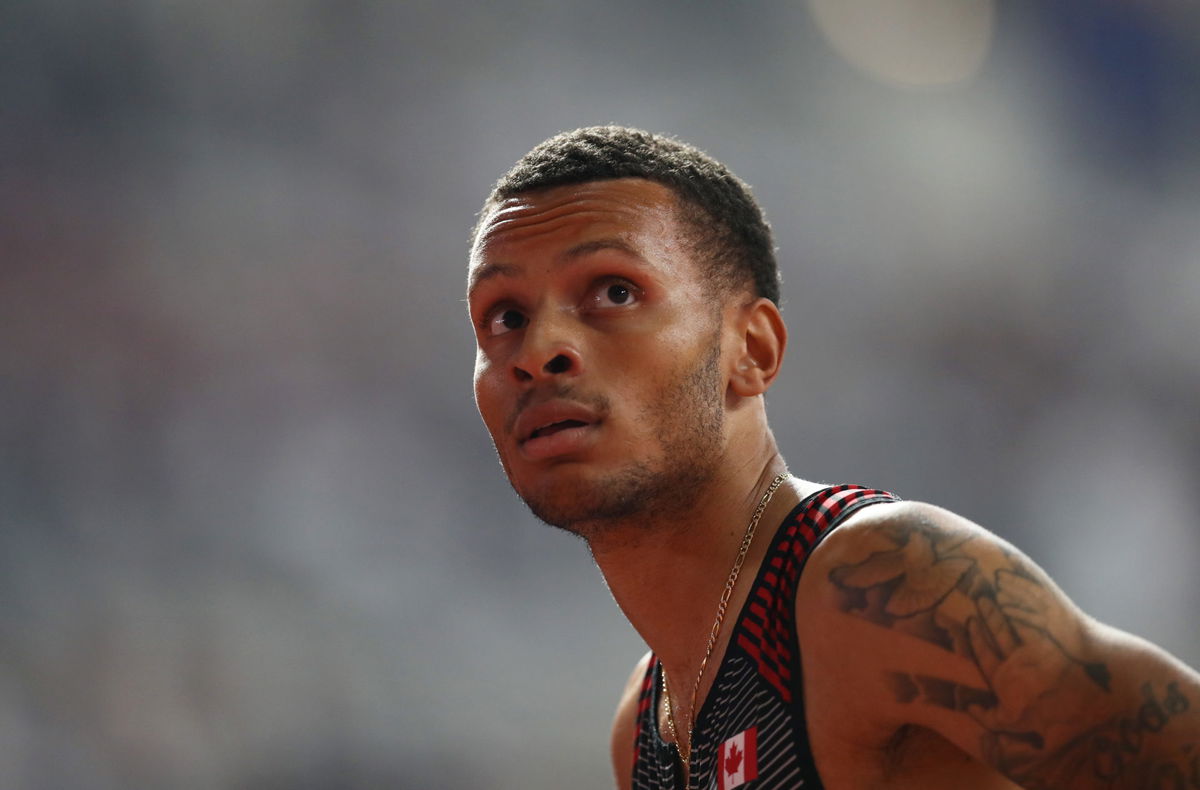
Getty
DOHA, QATAR – SEPTEMBER 30: Andre De Grasse of Canada reacts in the Men’s 200 metres semi finals during day four of 17th IAAF World Athletics Championships Doha 2019 at Khalifa International Stadium on September 30, 2019 in Doha, Qatar. (Photo by Maja Hitij/Getty Images)

Getty
DOHA, QATAR – SEPTEMBER 30: Andre De Grasse of Canada reacts in the Men’s 200 metres semi finals during day four of 17th IAAF World Athletics Championships Doha 2019 at Khalifa International Stadium on September 30, 2019 in Doha, Qatar. (Photo by Maja Hitij/Getty Images)
The Seiko Golden Grand Prix in Tokyo was expected to be another showcase of Andre De Grasse’s veteran dominance, but instead, it delivered a twist no one saw coming. The Canadian sprint icon had earlier lit up the track at the Florida Relays, anchoring Canada’s gold-medal-winning 4x100m relay team past a stacked American lineup. His classic comeback speed in the anchor leg had fans on their feet, a thrilling reminder that De Grasse, with seven Olympic medals to his name, still had plenty of fire left in the tank.
Watch What’s Trending Now!
But when De Grasse returned to the track at Seiko, the winds of momentum had shifted. The same rising American star he hunted down in Gainesville. 24-year-old Robert Gregory was back, this time to reciprocate. In a stunning reversal, Gregory seized the moment and the victory, flipping the script on his legendary rival and handing De Grasse a brutal defeat in the 200m.
A tweet by Track & Field Gazette highlighted, “In a tough battle with 🇨🇦 Andre De Grasse, Robert Gregory 🇺🇸 came through to win the men’s 200m at the Tokyo Golden Grand Prix.” And that one-liner summed up the seismic shift fans just witnessed on the track. Robert Gregory, the 2023 SEC Outdoor Champion in the 200m, clocked 20.24 seconds into a -2.0 m/s headwind to claim the crown in Tokyo. It wasn’t just a win. It was a statement. With poise and power, the Florida track and field star edged out the seasoned Canadian icon, who crossed the line in 20.29 seconds to settle for second. Japan’s Shota Iizuka followed in third with a 20.67s finish.
ADVERTISEMENT
In a tough battle with 🇨🇦 Andre de Grasse, Robert Gregory 🇺🇸 came through to win the men's 200m at the Tokyo Golden Grand Prix in a time of 20.24s (-2.0)!
The Canadian settled for 2nd in 20.29s, while 3rd place went to Shota Iizuka 🇯🇵 in 20.67s. pic.twitter.com/bi6saJNMOD
— Track & Field Gazette (@TrackGazette) May 18, 2025
Track and field is undergoing a transformation, and Andre De Grasse can feel it in every stride. With the rise of high-profile events like the Grand Slam Track series, a surge in sponsorship deals, and a fresh wave of global spotlight, the sport is evolving at lightning speed. But for Canada’s sprinting superstar, that progress comes with a tinge of nostalgia.
“I feel like I wish I was a little bit younger so I could enjoy the benefit more,” De Grasse admitted with refreshing honesty. It was a moment that revealed not defeat, but perspective from a man who has spent nearly a decade at the top of the sprinting world.
ADVERTISEMENT
At 30, De Grasse remains one of the most electrifying athletes on the track. His legacy is cemented. For a national legend who changed the sprinting landscape of Canada, this was more than a loss. It was a reminder that time waits for no one.
ADVERTISEMENT
Andre De Grasse eyes the future amid Track’s evolution
Track and field has seen a seismic evolution over the last decade. With advancements like stricter shoe regulations and the introduction of the “World Rankings” system by World Athletics, the sport has stepped into a new era. One built on structure, visibility, and opportunity. College athletes now benefit from NIL deals, while professionals enjoy expanded access to performance analytics and global media exposure.
Top Stories
Drake Maye Reveals Shoulder Injury Update as Patriots QB Announces News On Super Bowl Availability
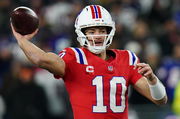
Dak Prescott Officially Puts Jerry Jones & Cowboys on Notice, Threatens Action on George Pickens Contract

NFL Sends Muted Warning to Bad Bunny Before Super Bowl Halftime Performance Amid ICE Controversy
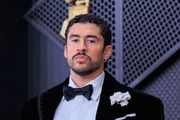
Rob Gronkowski Demands Severe Punishment for Andy Reid After Bill Belichick Snub
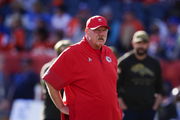
Travis Kelce Makes Sporting Return as Teammate Gives Update on Chiefs TE’s Retirement

PGA Tour Split Into Two as Scottie Scheffler Confirms Stance on Patrick Reed’s Return
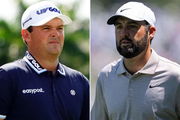
Pioneers like Andre De Grasse have not only left their mark on the medal count but also helped boost the sport’s marketability. Back in December 2015, he signed a game-changing multi-year deal with Puma. Factor in performance bonuses, and the deal could’ve hit nearly $30 million, making it one of the most lucrative sponsorships in track and field history.
That financial success coincided with one of his most dominant seasons, claiming double gold in the 100m and 200m at the NCAA Championships and grabbing two bronze medals at the World Championships. But for De Grasse, this story isn’t just about cash and clout. It’s about legacy and unfinished business. His recent partnership with legendary coach Mike Holloway has reignited his fire, giving him a renewed sense of direction.
ADVERTISEMENT
With the 2028 Los Angeles Olympics on the horizon, De Grasse is thinking beyond the podium. “(It would) be a full-circle moment for me to get to the L.A. Olympics 2028, and then we can go from there. We can re-evaluate this,” he told Coast Reporter. His mindset? “Just go with the flow and just continue to remember to keep having fun and enjoying myself and embracing the moment.”
For now, De Grasse is keeping his next chapter close to the chest. He’s not shouting for attention, but he’s not backing down either. As younger stars rise and the field grows fiercer, the road ahead won’t be smooth. As for Andre De Grasse, well, he’s never been afraid of a fight, especially when redemption is on the line.
ADVERTISEMENT
ADVERTISEMENT
ADVERTISEMENT